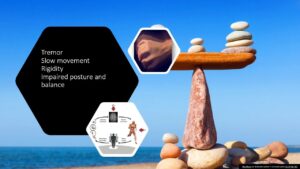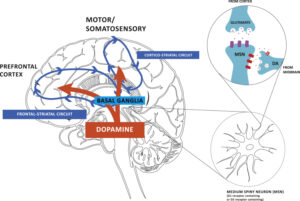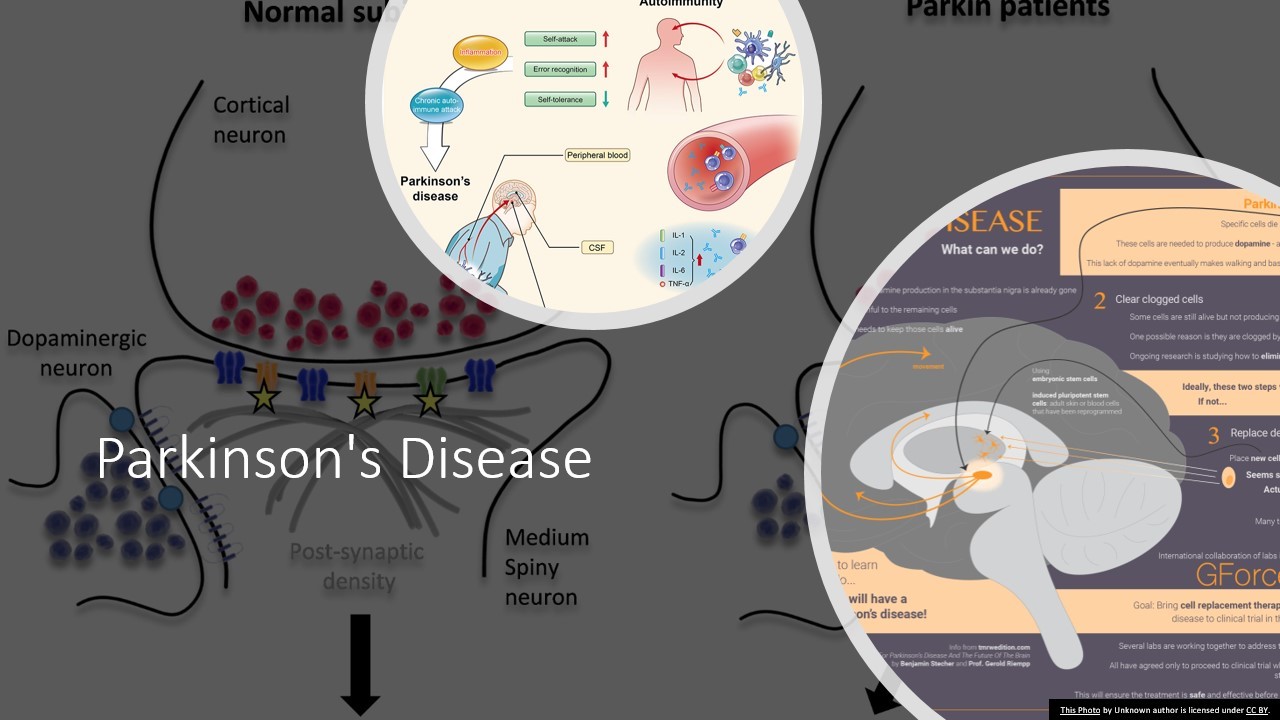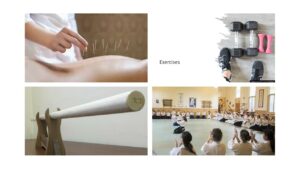Parkinson’s disease is a long term degenerative neurological disorder, it is a progressive condition that affects movement. Symptoms start gradually, sometimes starting with a barely noticeable tremor in just one hand. Tremors are common, but the disorder also commonly causes stiffness or slowing of movement. The cause of the disorder is still unknown however it is said that it is caused by a combination of genetics and environmental factors. Some studies have identified that there is less than 10% of cases that is only caused by genetic factors. We also know that certain medications can cause Parkinsonism so it is important to be aware of medication’s side effects. We have found that stress increases the symptoms so finding ways to keep it down is beneficial.
In Parkinson’s disease some nerve cells’ destruction is causing a decrease of Dopamine which is an important messenger that helps the muscles to work correctly.
Symptoms:
- Tremor. A tremor, or shaking, usually begins in a limb, often your hand or fingers. You may rub your thumb and forefinger back and forth, known as a pill-rolling tremor. Your hand may tremble when it’s at rest.
- Slowed movement (bradykinesia). Over time, Parkinson’s disease may slow your movement, making simple tasks difficult and time-consuming. Your steps may become shorter when you walk. It may be difficult to get out of a chair. You may drag your feet as you try to walk.
- Rigid muscles. Muscle stiffness may occur in any part of your body. The stiff muscles can be painful and limit your range of motion.
- Impaired posture and balance. Your posture may become stooped, or you may have balance problems as a result of Parkinson’s disease.
- Loss of automatic movements. You may have a decreased ability to perform unconscious movements, including blinking, smiling or swinging your arms when you walk.
Reference: https://www.mayoclinic.org/diseases-conditions/parkinsons-disease/symptoms-causes/syc-20376055
Off Episodes:
- May consist of tremor, slowness, stiffness, difficulty moving or walking, and trouble getting around
- Can happen because the positive effects of your oral levodopa medications have worn off
- Can interfere with your everyday work, recreation, or even routine daily activities
- Can last for a few minutes or up to a few hours
- May be experienced multiple times a day
Medication and in some cases, surgery might be an option. Acupuncture is also an option to reduce pain where there is stiffness and muscle atrophy.
 We believe that it is possible to slow down the progression of the disease with some form of exercises. Currently, there are many clinics across the US offering exercise programs to slow down the progression of Parkinson.
We believe that it is possible to slow down the progression of the disease with some form of exercises. Currently, there are many clinics across the US offering exercise programs to slow down the progression of Parkinson.
Some studies are showing the importance to exercise:
https://www.ncbi.nlm.nih.gov/pmc/articles/PMC4621077/
Exercise stimulates the production of Dopamine and it also decreases stress. Exercises can slow down the progression of Parkinson’s disease.
La Vie Acupuncture Clinic, Inc., in collaboration with Ventura Aikido, LLC will be starting a new exercise program in June to help patients suffering from Parkinson’s disease.



